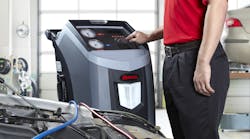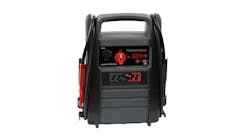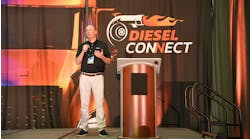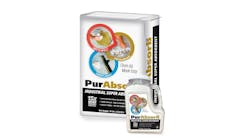Every vehicle is a little different when servicing A/C systems, from fitting placement to amount of refrigerant needed and other variables. One thing they all had in common a decade ago – voltage. The automobiles had a 12V battery source for starting, running electronics and fuel injection, and you knew what to expect.
The rise in popularity of hybrid and electric vehicles means one more thing to think about to safely service a vehicle’s A/C system, as some vehicles have higher voltage systems that require more attention. These higher voltage systems also use a different oil type verses traditional A/C systems, leading to concerns about cross-contamination when servicing multiple vehicles.
The biggest difference in oil properties? One absorbs moisture and can conduct electricity. The other does not. When working on high-voltage systems, cross-contamination can make for a dangerous day in the shop. Ensuring you’re working with the correct, uncontaminated oil is your first step in performing the service safely.
Luckily, you can use one machine for hybrid/electric vehicles and conventional internal combustion engine vehicles. You’ll want to make sure the machine is engineered to work on both systems, though, to minimize risk of cross-contamination.
Unfortunately, you can’t just change the oil bottle to the right type of oil. Machines that are compatible with servicing both high voltage electric systems and traditional systems no longer have on-board oil inject. Even with changing oil bottles to the right type of oil, more than likely oil will still be in the machine that you’ll not be able to get out and you run the risk of oil cross-contamination when servicing. Common safety practices are preached while servicing high-voltage systems for good reason.
When servicing hybrid/electric vehicles:
- Do use a machine designed to work on both hybrid/electric and conventional vehicles.
- Do follow all recommended safety procedures. They’re for your protection.
- Do check all hoses and fluids to ensure they are designed to service hybrid/electric vehicles and are compatible with the vehicle.
- Don’t use an old machine not designed for hybrid/electric vehicle service.
- Don’t assume all oils are interchangeable – hybrid/electric vehicles require different oil than conventional vehicles.
Do you use separate machines for A/C service in low- and high-voltage systems? Or do you refer these vehicles to a shop with a dedicated machine?
Information provided by: Robinair



